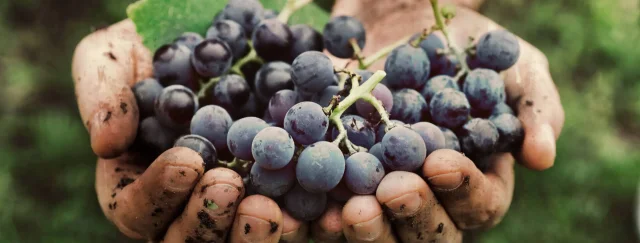
In an era where environmental consciousness is essential, the wine industry is embracing sustainability as a guiding principle. The marriage of wine and sustainability goes beyond the vineyards, extending to the winemaking process, packaging innovations, and even how we store and enjoy our favorite vintages. Let's explore the eco-friendly practices that are reshaping the world of wine and how companies like Dunavox are contributing to a greener tomorrow.
The journey toward sustainable wine begins in the vineyards. Sustainable practices prioritize organic and biodynamic farming methods. These approaches eschew synthetic pesticides and fertilizers, fostering healthier soil and producing grapes that are not only better for the environment but also yield wines with distinctive, terroir-driven characteristics. Wineries committed to sustainable viticulture are becoming pioneers in preserving both the land and the essence of their wines.
Winemaking itself is undergoing a green revolution. Many producers are adopting energy-efficient practices and minimizing chemical interventions in their processes. Eco-friendly certifications, such as organic and biodynamic labels, assure consumers that the winery adheres to stringent environmental standards. This shift towards sustainability not only reduces the ecological footprint of winemaking but also results in wines that authentically reflect the unique qualities of their origin.
The environmental impact of traditional wine packaging is prompting a reevaluation of industry norms. Enter sustainable packaging solutions, including recycled materials and lightweight designs. Wineries are increasingly adopting eco-conscious alternatives to reduce waste and carbon emissions associated with transportation. From recycled glass bottles to innovative bag-in-box options, the wine industry is proving that sustainability can be as stylish as it is responsible.
Reduce Reuse Recycle is known to the environmentally conscious consumers by the term of 3R's calling for an increase in the ratio of recyclable materials, reuse of raw materials and manufacturing waste and overall reduction in resources and energy used. The concept of 3R's has become the governing part in every aspect of doing business by the entire Dunavox community and has been applied to the entire lifecycles of products and services.
In order to reduce our environmental footprint, Dunavox is committed to produce and sell wine coolers of long-lasting lifetime shown by the unique 3-year warranty Dunavox wine coolers are supported by.
The most important way of reducing waste is by not creating waste in the first place. By reducing the usage of unwanted products, this will save our natural resources and decreases energy consumption. Dunavox's recent efforts to minimize the usage of unnecessary materials includes the use of less packaging materials, the introduction of e-manuals instead of paper- based documentation and the complete removal of any ozone harming gas from our wine coolers as well as aiming for 100% paper-free working environment at all Dunavox offices.
We don't throw away any reusable material but try to reuse as much material as possible including cardboard packaging, protective material, pallets and other packaging substances. Broken or returned units are repaired and sold with substantial discount or donated instead of scrapping them. Unwanted office equipment is also donated to non-profitable organizations and charity.
Cardboard used for packing our wine coolers contains at least 50% recycled paper and protective polyfoams are made of fully recycled polystyrene. Fans, power boards and displays are manufactured by recycled plastics. Dunavox aims for 100% recyclability in the use of all paper and polymer materials.
Dunavox ensures a separate collection of waste all along it's entire supply chain as well as in the offices.
Sustainability doesn't end with the bottle; it extends to how we consume and store wine. Conscious consumers can make a difference by supporting wineries with strong sustainability commitments. Responsible wine storage and consumption practices further contribute to a more eco-friendly lifestyle. By choosing wines aligned with environmental values and storing them in energy-efficient coolers, consumers become active participants in the sustainability movement.
In the symbiotic relationship between wine and sustainability, consumers hold significant power. By making informed choices that prioritize eco-friendly practices, we contribute to a more sustainable future. As you embark on your journey of sipping sustainably, consider the impact of your choices. Together, we raise our glasses to a future where every sip supports a greener, more vibrant planet.